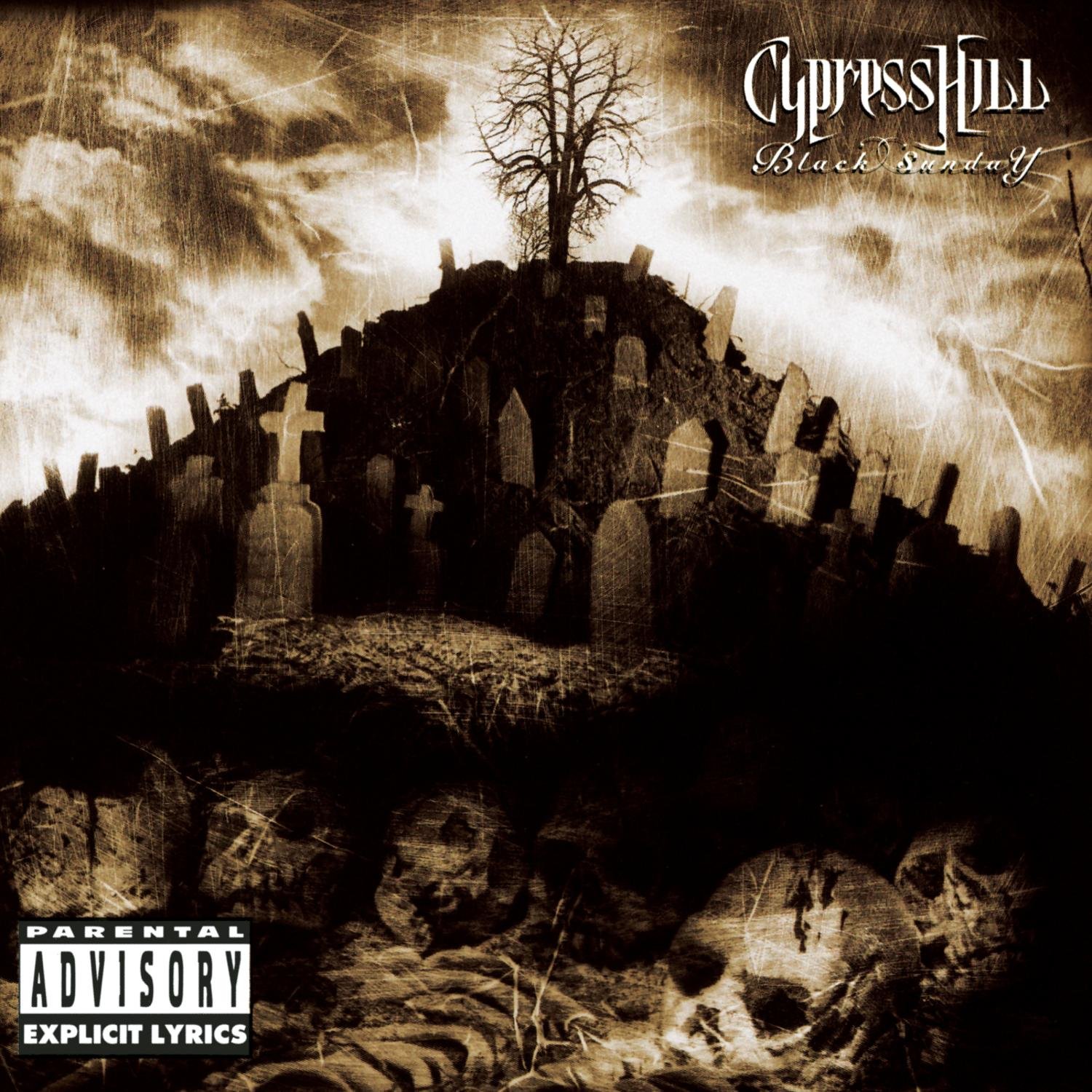This article originally appeared in the August 1993 issue of SPIN.
The only true measure of a song’s worth these days is its acceptance on the pay-as-you-play cable outlet The Box. Somewhere in that mix of teenyboppers, junkies, and insomniacs, the true face of the American public shows itself, and ever since the summer of ’91 it has been punching its touch tones for “How I Could Just Kill a Man.” A mad scientist’s concoction, “Kill a Man” mixed an ominous beat with a carnivalesque bridge to carry some of the most irrefutable rhymes to come out of rap in years. When B-Real asked, “How do you know where I’m at when you haven’t been where I’ve been, understand where I’m coming from?” it was one of the most unassailable lyrics since Run-D.M.C.’s “Every jam we play, we break two needles / There’s three of us, but we’re not the Beatles.”
Since that single dropped, the Cypress sound has infiltrated hip hop with a viral insistence. With the fans, Cypress Hill relentlessly gathered a platinum-size base; its first album squeezed out four singles, more appropriate for a bloated Def Leppard or Whitney Houston opus than a rap record. And inside the rap world, only dancehall has had a comparably powerful influence. The new jacks on the block, from Redman to the Beatnuts to Onyx, wear their debts to Cypress on their sleeves, and even old pros such as Ice Cube have slipped DJ Muggs a few bills to produce some tracks.
Black Sunday is a consolidation of power for Cypress Hill, tending more toward perfecting a solid formula than toying with invention. Muggs’s trademark is in the sirens, shrieks, whistles, and beeps that sound throughout this album and its predecessor. The siren—of a police car, ambulance, or the wail of a car alarm—is an inescapable feature of the urban aural landscape. Inevitably, it has become part of that landscape’s art, and Muggs makes an aesthetic, not just a tool, out of the noise. “Kill a Man” chopped up a guitar riff until it became a periodic scream; House of Pain’s Muggs-produced “Jump Around” made the shrill into a pop hook; with Black Sunday, Muggs has perfected his method, recycling all manner of sonic trash to find the useful artifact. On the instrumental “Interlude,” a whale-song-like moan swims over a track so densely packed it nearly has its own gravitational field. Lyricless, the song sits on the album, a groove for groove’s sake; like Pete Rock, Muggs has beats to spare.
Cypress Hill lingered on the charts like some hip-hop Dark Side of the Moon, an analogy that obligingly segues into the band’s favorite preoccupation. From the get-go, Cypress Hill has endorsed—to put it lightly—the use of marijuana in all its forms, and the new record shows that all the NORML pamphlets it has accumulated over the last two years have not just been used for rolling blunts. The paeans are still here—”Wanna Get High” and “Legalize It” offer ’90s takes on old reggae logics—but Black Sunday shows them proudly raising the banner of the pro-hemp lobby. “Hits From the Bong” is representative of the band’s new stance. Sound bites from a hemp rally open up the track: “An acre of hemp produces four times as much paper as an acre of trees,” explains one speaker; “it is time to reconsider hemp and stop cutting trees,” joins another. A while back in High Times magazine, Cypress demonstrated how to make a blunt for the magazine’s mostly white audience; on “Hits From the Bong,” B-Real brings some of the hippie arcana back to the street: “Put the blunt down just for a second / Don’t get me wrong, it’s not a new method,” B-Real informs all the neophytes in the house, “there’s water inside, don’t spill it / It smells like shit on the carpet / Still it goes down smooth when I get a clean hit.”
Implicit in the hemptalk is a notion of hippie-era unity between the Earth and all its people, or as one sound bite here has it, “every denomination, every color, every religion.” The happily blunted audience Cypress envisions for itself speaks to that dream of cross-cultural alliance. The lyrics, however, point to the dissolution of that Aquarian pact. On “Like a Shot,” B-Real, trapped in a cycle of sudden, unavoidable death, wakes up from a dream of getting gunned down, only to get wasted in his bed by another anonymous enemy. B-Real rarely raps about violence for its own sake, usually framing his scenarios in the context of self-defense; he’s a doper who’d rather remain on the blunt side, but the city keeps him vigilant. If Black Sunday brings Cypress Hill into tighter focus, it also more clearly defines the paradox of its concerns.





